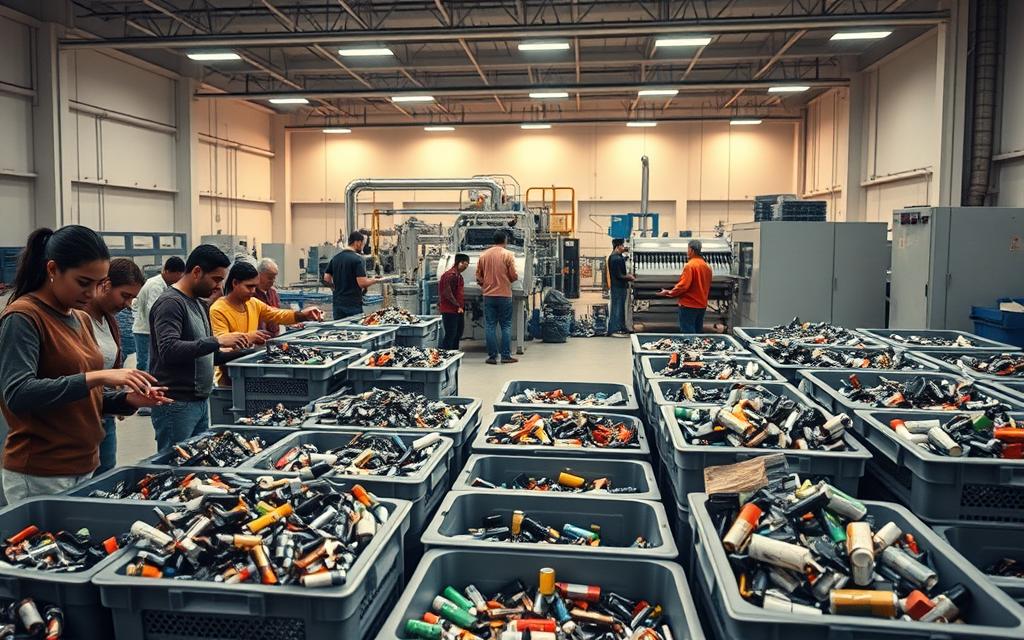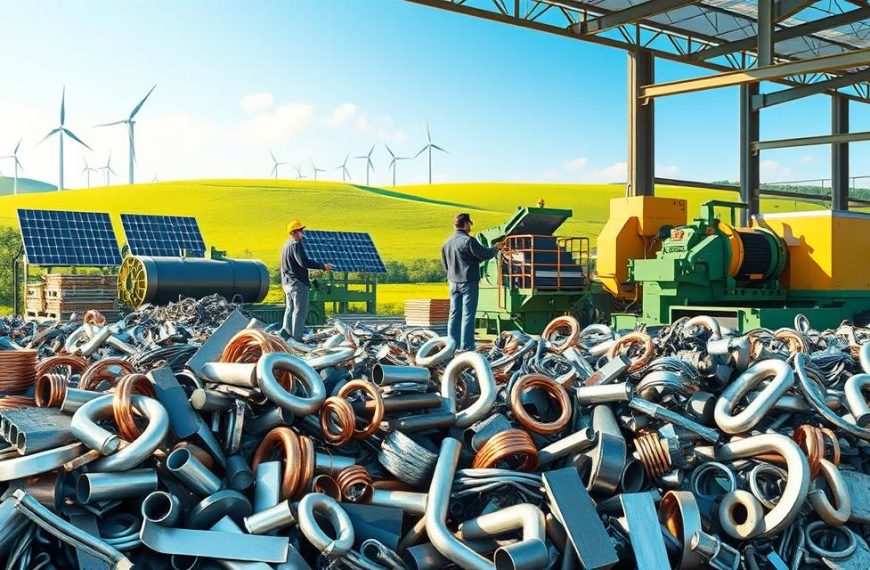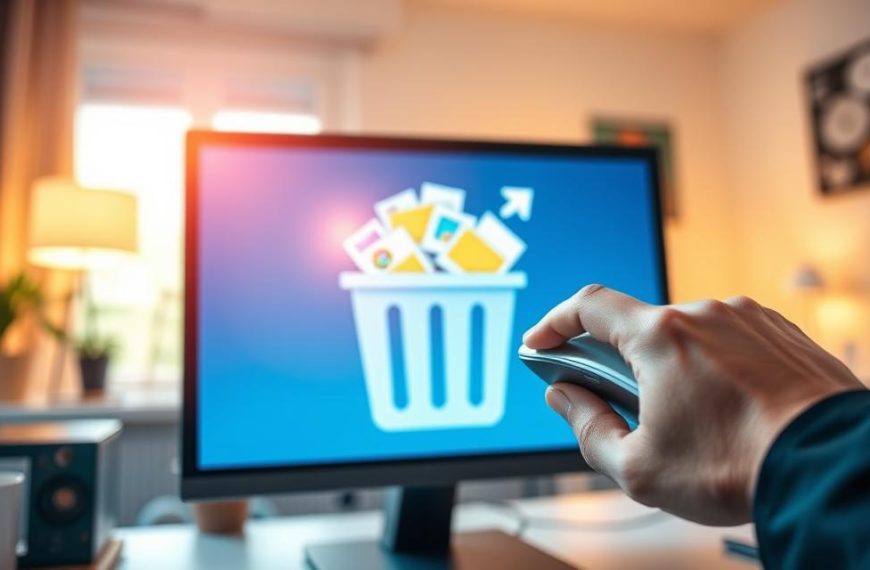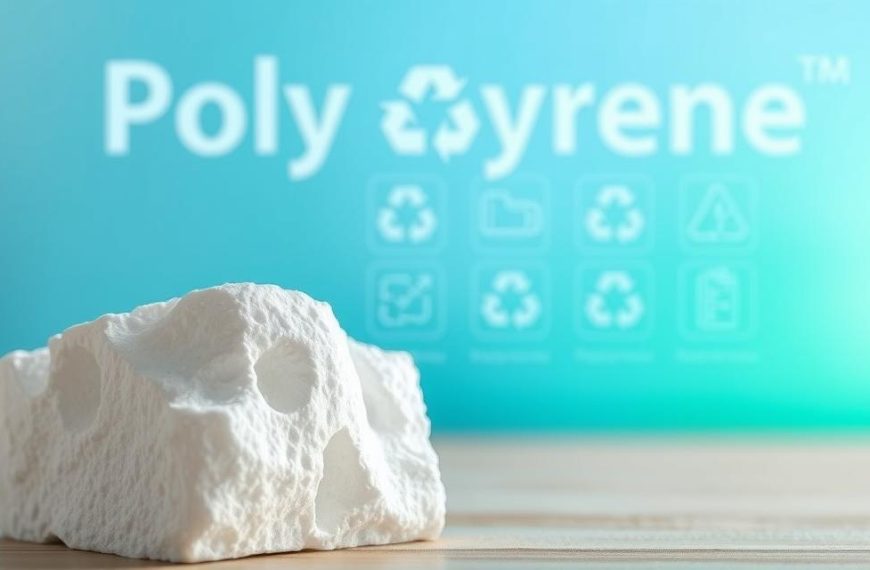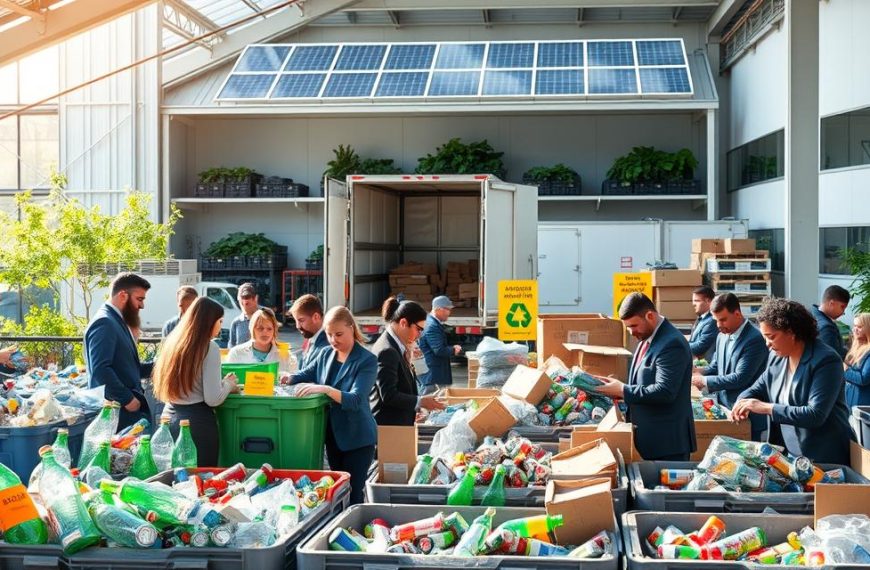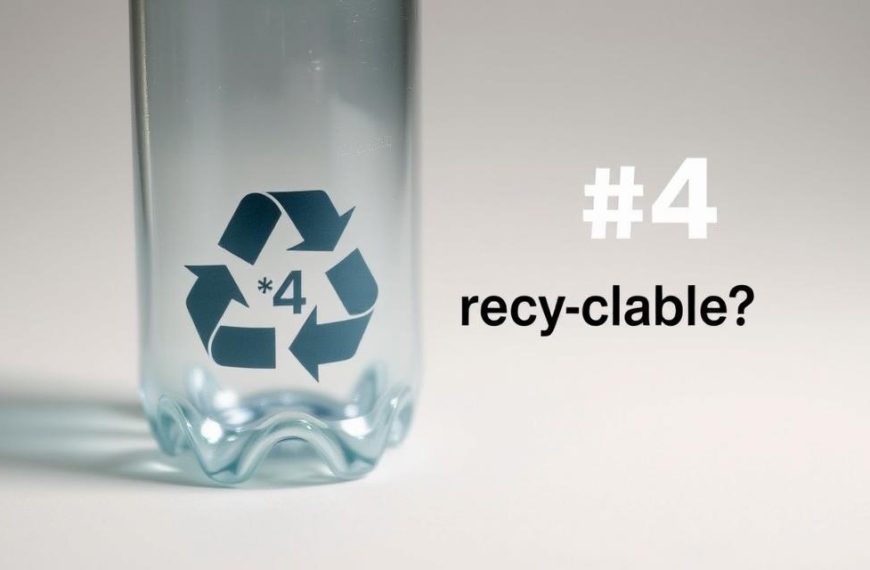The UK is grappling with a growing problem of electronic waste, with over 1.2 million tonnes of unwanted electrical products discarded annually. Proper disposal of these items is crucial for protecting the environment.
Tesco Extra shops now offer a recycling service for electrical items, including laptop batteries. This initiative helps individuals recycle batteries safely and responsibly. Currently, the UK recycles only 45% of batteries, ranking 14th in Europe.
This comprehensive guide will explore Tesco’s recycling programme, the growing issue of electronic waste, and the importance of proper disposal methods to protect the environment.
Understanding Battery Recycling and Its Importance
Battery recycling plays a vital role in mitigating the environmental impact of waste batteries. The process involves the collection and processing of used batteries to recover valuable materials such as lithium, cobalt, and nickel, which can be reused in the production of new batteries.
The Environmental Impact of Improper Battery Disposal
Improper disposal of batteries can lead to significant environmental harm. Batteries contain hazardous chemicals that can leach into soil and water systems, contaminating ecosystems. For instance, one discarded laptop battery can pollute approximately 600,000 litres of water.
UK Battery Recycling Statistics
The UK has made progress in battery recycling, with a current recycling rate of approximately 45%. However, this still means that a significant amount of battery waste is not being properly recycled. To put this into perspective, approximately 600 million batteries are sold annually in the UK.
| Year | Batteries Sold (millions) | Recycling Rate (%) |
|---|---|---|
| 2019 | 600 | 42 |
| 2020 | 610 | 45 |
| 2021 | 620 | 45 |
By understanding the importance of battery recycling and the current state of recycling in the UK, we can better appreciate the need for continued improvement in this area. Proper recycling practices can significantly reduce the environmental impact of battery waste.
Tesco Battery Recycling Programme Overview
Tesco has introduced a comprehensive battery recycling programme across its UK stores. This initiative allows customers to recycle various types of batteries, contributing to the company’s environmental sustainability goals.
Types of Batteries Accepted
Tesco’s battery recycling programme accepts a wide range of batteries, including household batteries (AAA, AA, C, D, 9V), button batteries, and rechargeable batteries from devices like mobile phones, laptops, and power tools. By accepting various battery types, Tesco makes it easier for customers to participate in the recycling programme.
Where to Find Battery Collection Points
Battery collection points are available across different Tesco store formats, including Tesco Express, Metro, Superstore, and Extra locations. Customers can drop off their used batteries at these designated collection points, making responsible disposal a convenient part of their shopping trip. For more information on Tesco’s battery recycling programme, visit https://it-recycle.uk/tesco-battery-recycling-recycle-your-used-batteries/.
How to Recycle Batteries at Tesco
To recycle batteries at Tesco, customers can follow a simple, eco-friendly process. This involves a few straightforward steps that help ensure the responsible disposal of electronic waste.
Step-by-Step Guide to Battery Recycling
Recycling batteries at Tesco is easy. First, locate the battery collection points typically found near the store entrance. Then, ensure your used batteries are properly prepared by discharging them completely and placing them in a clear plastic bag to prevent short-circuiting.
- Identify the battery collection points in your local Tesco store.
- Prepare your batteries by discharging them and storing them safely.
Preparing Batteries for Recycling
Before recycling, it’s crucial to prepare your battery correctly. For lithium batteries, tape the terminals to prevent any risk of fire. Remove batteries from devices and store them in a dry place away from children until you can take them to Tesco. This simple process helps ensure safe handling and recycling.
WEEE Regulations and Retailer Responsibilities
The WEEE Directive, implemented in 2007, has been instrumental in shaping the UK’s approach to electronic waste management. This regulation aims to reduce the environmental impact of electrical and electronic equipment by promoting recycling and proper disposal.
Understanding the WEEE Directive
The WEEE Directive is an EU law designed to minimise electronic waste. It requires retailers like Tesco to provide collection points for e-waste, including laptop batteries, to ensure proper environmental disposal. The directive’s primary goals are to cut landfill waste, boost recycling, and minimise environmental contamination.
How Tesco Complies with Battery Recycling Regulations
Tesco adheres to WEEE regulations by accepting old electrical products for free when customers purchase new ones. Additionally, Tesco provides battery recycling points across its store network, making it convenient for customers to recycle their waste batteries. This compliance not only helps in reducing electronic waste but also promotes sustainable practices among consumers.
| Retailer Responsibilities | WEEE Directive Requirements |
|---|---|
| Accept old electrical products for free with new purchases | Promote recycling and proper disposal of e-waste |
| Provide battery recycling points in stores | Minimise environmental contamination from e-waste |
| Ensure proper disposal of hazardous waste | Cut landfill waste and boost recycling rates |
Alternative Battery Recycling Options in the UK
UK residents can access multiple battery recycling options beyond Tesco’s programme. This ensures that everyone has a convenient method to dispose of their waste batteries responsibly.
Local Council Recycling Centres
Local council recycling centres are a vital part of the UK’s waste management system. They accept various types of waste, including batteries, which are segregated for proper disposal. Residents can locate their nearest recycling centre and check its operating hours to recycle their batteries.
Other Retailers Offering Battery Recycling Services
Several major retailers in the UK offer battery recycling services. Sainsbury’s, Argos, and Boots are among the stores that have designated collection points for batteries. Specialised electronics stores also participate in battery recycling programmes. Some manufacturers, like Apple, Dell, and HP, have take-back schemes for their products’ batteries.
Conclusion
Proper battery recycling is crucial for protecting our environment and conserving valuable resources. Tesco’s battery recycling programme provides an accessible way for consumers to recycle batteries responsibly.
By participating in this initiative or utilising alternative recycling options in their communities, individuals can make a significant difference in reducing waste and promoting sustainable consumption patterns.
Taking action to properly dispose of batteries helps protect soil, water, and wildlife from contamination. Let’s make battery recycling a regular habit and spread awareness about proper disposal methods.
FAQ
What types of batteries can be recycled at collection points?
Most household batteries, including alkaline, nickel-cadmium (Ni-Cd), nickel metal hydride (NiMH), and lithium-ion (Li-ion) batteries, can be recycled. This includes batteries from cordless products and other electrical items.
Why is it important to recycle waste batteries?
Batteries contain valuable resources such as metals and can be harmful to the environment if sent to landfill. Recycling helps to conserve these resources and reduces the risk of chemicals leaking into the environment.
How do I prepare my batteries for recycling?
To prepare batteries for recycling, tape the terminals to prevent them from coming into contact with other metals and causing a fire. Some collection points may have specific guidelines, so it’s worth checking before you go.
Can I recycle batteries from electrical products at household waste collection points?
Yes, many local council recycling centres and some retailers offer battery recycling services. You can also recycle batteries at designated collection points in stores.
What happens to the batteries after they are collected for recycling?
The collected batteries are taken to a recycling facility where they are sorted and processed to extract valuable materials such as metals. These materials can then be used to manufacture new products, reducing the need for energy to produce primary materials.
Are there any regulations governing battery recycling in the UK?
Yes, the UK is subject to the WEEE Directive, which sets out regulations for the recycling of electrical and electronic waste, including batteries. Retailers like Tesco have a responsibility to provide battery recycling services and comply with these regulations.
